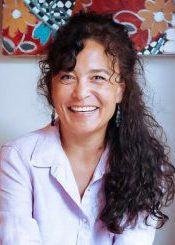Current Members

Deaweh Benson
Doctoral student, Department of Psychology
About Deaweh
Deaweh earned her Bachelor of Arts degree from Spelman College and her Master of Education from the Harvard Graduate School of Education. She has worked in academic institutions and research organizations where she investigated college student academic success, school-to-work transitions, and developmental supports for young adults.

Gabriel Johnson

Gabrielle Peterson

Kiana Bess

Lewis Miles
About Lewis

Brianna Ross

Janae Best
About Janae

Akilah Patterson
Doctoral student, School of Public Health
About Akilah
Akilah Patterson, MPH is a doctoral student in the Department of Health Behavior and Health Education. Her research focuses on the effects of racial discrimination on mental health among adolescents and emerging adults. Previously, she was a project manager for the Healthy Minds Study, the largest and most comprehensive national research study on college student mental health.

Dominique Sylvers
About Dominique

Enrica Bridgewater
Doctoral student, Department of Communications and Media
About Enrica

Ramona Perry

Andrew Youmans
About Andrew
Andrew Youmans is a nurse, certified nurse-midwife, and PhD student in the School of Nursing. His research interest focuses on cardiovascular disease and pregnancy and reduction in pregnancy-related morbidity and mortality. Racism is a key contributor to pregnancy-related morbidity and mortality in the United States. In addition to being a nurse midwife, Andrew has experience in emergency nursing, critical care, and cardiovascular nursing. He is active in multiple professional organizations, including: the American College of Nurse-Midwives (ACNM), the American College of Cardiology (ACC), the Association of Women‚ Association Health Obstetrical and Neonatal Nurses (AWHONN), the American Association of Birth Centers, and the Wilderness Medical Society. He currently serves on the ACNM Foundation Board of Directors and represents ACNM on the Alliance for Innovation on Maternal Health (AIM)‚ Sepsis in Obstetrical Care bundle development workgroup.
Faculty

Myles I. Durkee
Assistant Professor
Department of Psychology
About Myles
Email: mdurkee (at) umich (dot) edu

Jennifer M. Gómez
Assistant Professor, Boston University
School of Social Work, Clinical Practice Department
Center for Innovation in Social Work & Health
About Jennifer
Jennifer M. Gómez, Ph.D., is an Assistant Professor at Boston University School of Social Work and Center for Innovation in Social Work & Health. Additionally, she is a Board Member and Chair of the Research Advisory Committee at the Center for Institutional Courage, lead co-editor of the 2021 special issue of Journal of Trauma & Dissociation- Discrimination, Violence, & Healing in Marginalized Communities, and member of the Scientific Committee of the International Society for the Study of Trauma & Dissociation (ISSTD). As a 2021-22 Fellow at the Stanford University Center for Advanced Study in the Behavioral Sciences (CASBS), Dr. Gómez wrote her first book on cultural betrayal, sexual abuse, and healing for Black women and girls (Publisher: American Psychological Association; anticipated publication date: Summer 2023). Her primary research focus is cultural betrayal trauma theory (CBTT), which she created as a framework for empirically examining the mental, behavioral, cultural, and physical health impact of violence on Black and other marginalized youth, young adults, and elders within the context of inequality. Dr. Gómez has published over 100 peer-reviewed journal articles, book chapters, scholarly writings, professional development documents, and pieces for the general public. Her work has been recognized by the National Academy of Sciences (NAS), Ford Foundation, and Michigan Center for Urban African American Aging Research (MCUAAAR). Dr. Gómez’ ultimate goal for her research is to identify avenues of hope and healing for individuals, families, communities, institutions, and society.

Margaret T. Hicken
Research Associate Professor
About Margaret
Through her entire research program, Margaret Hicken is committed to clarifying the social causes and biological mechanisms linking racial group membership to renal and cardiovascular disease inequalities. The major hallmark of Hicken’s research is the integration of scientific knowledge from diverse disciplines, as this transdisciplinary approach to research allows for creative and innovative insights into the root causes and mechanisms of the seemingly intractable racial health inequalities. A significant portion of her research program falls at the intersection of sociology, geography, and environmental toxicology, examining the interrelated roles of racial residential segregation, neighborhood disadvantage, environmental hazards, and racial health inequalities.

Ketlyne Sol
Research Investigator
Department of Psychology and Social Environment and Health Program
